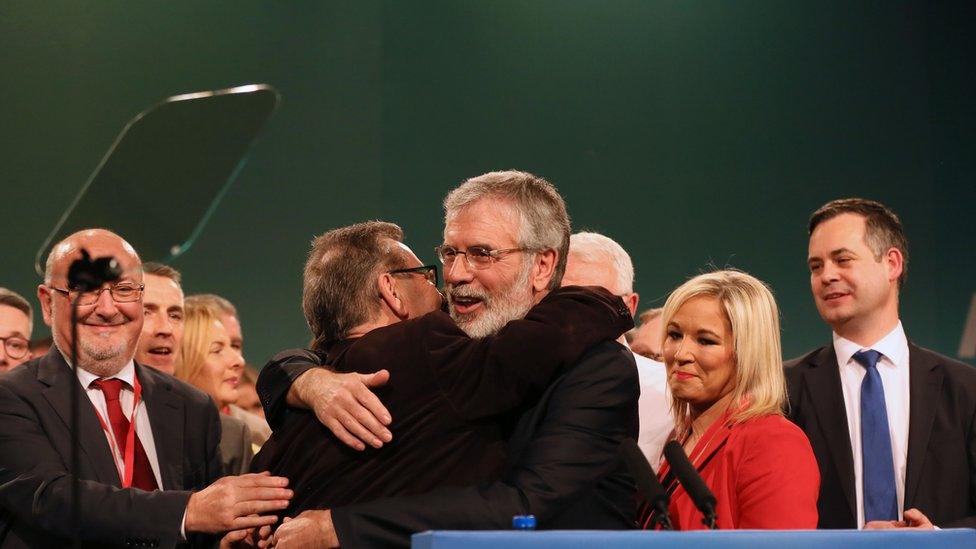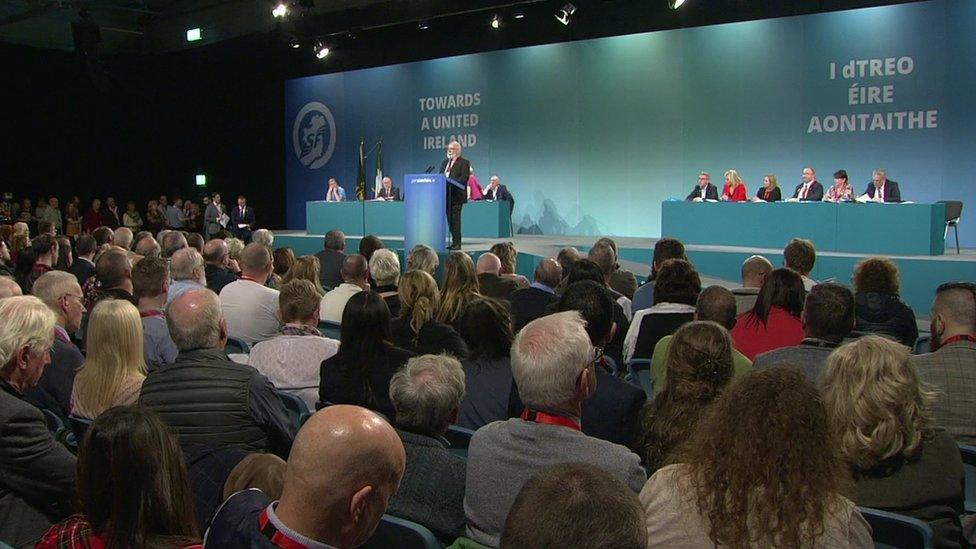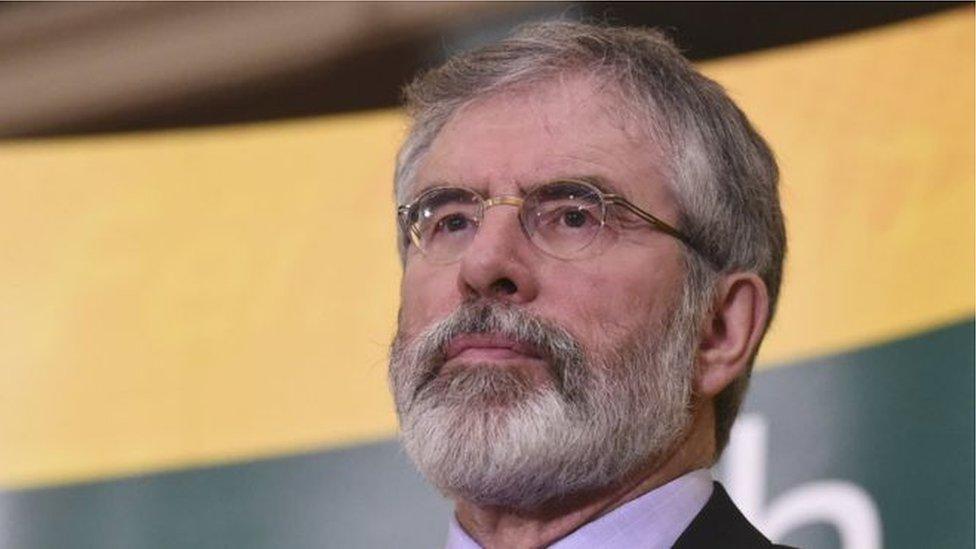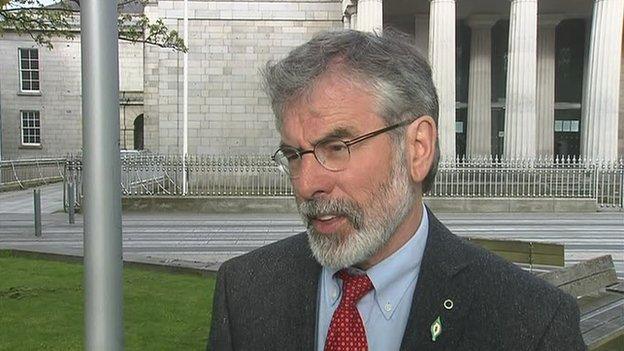Gerry Adams to stand down as Sinn Féin leader next year
- Published
Mr Adams said leadership means knowing when it's time for change
Sinn Féin president Gerry Adams has revealed he plans to stand down as leader of the party next year.
Mr Adams also said he will not stand for election to the Irish parliament (Dail) at the next election.
Speaking at the Sinn Féin ard fhéis (party conference) in Dublin, Mr Adams said it would be his last as leader.
"Leadership means knowing when it's time for change and that time is now," the 69-year-old, who has been party president since 1983, said.

Analysis: BBC NI political editor Mark Devenport
So the build-up was justified - to paraphrase one of Gerry Adams' most famous phrases, he is going away you know.
The precise date will depend on the party's ard comhairle or ruling executive which is expected to meet within the next fortnight - they will in turn call an extraordinary ard fheis where a new leader will be elected.
Sinn Féin may hope that Mr Adams' decision not to stand in the next Irish election will make any talks about a future coalition in Dublin more straightforward.
But the Fianna Fáil Leader Micheal Martin has repeated his view that Sinn Fein remains unacceptable as a partner in government.
Whatever the future brings, though, there's no doubt Gerry Adams' move marks an historic change as a leader who oversaw the republican movement's journey between violence and peace gives way to another politician who will pursue Irish unity through more conventional parliamentary politics.

Mr Adams, the TD (member of the Irish parliament) for County Louth, said he would be asking the party leadership to agree a date in 2018 for a special party conference to elect a new leader.
"I have always seen myself as a team player, as a team builder," he said.
"I have complete confidence in the leaders we elected this weekend and in the next generation of leaders."

Mr Adams is surrounded by party colleagues after his announcement
Mr Adams said the move was formulated along with party colleague Martin McGuinness before his death earlier this year.
It has already seen Michelle O'Neill, 40, take the role of Sinn Fein's leader at Stormont.
Earlier, delegates at the conference voted in favour of a motion to hold a special ard fhéis three months after the departure of the party president.
The motion will allow for a leadership contest once the vacancy arises.
Abortion vote
Delegates also voted to liberalise the party's policy on abortion.
Party members voted in favour of allowing abortions where a pregnancy poses a risk to a woman's health, including mental health.

The ard fhéis (party conference) has been taking place in Dublin
There will be a referendum on abortion law in the Republic of Ireland in May or June of next year.
Sinn Féin's previous position supported allowing terminations when a baby is expected to die in the womb or shortly after birth, and in cases of rape or incest.
Currently, the law in the Republic of Ireland only permits abortion when there is a real and substantial risk to a woman's life. In Northern Ireland, terminations are only legal when continuing with a pregnancy poses a serious or permanent risk to a woman's health.
Meanwhile, Sinn Féin's Stormont leader has called on the Irish government to appoint a minister with responsibility for advancing Irish unity.
Michelle O'Neill told the party conference that a parliamentary committee in the Republic of Ireland should also be formed to look at a united Ireland.
- Published18 November 2017

- Published20 November 2017
